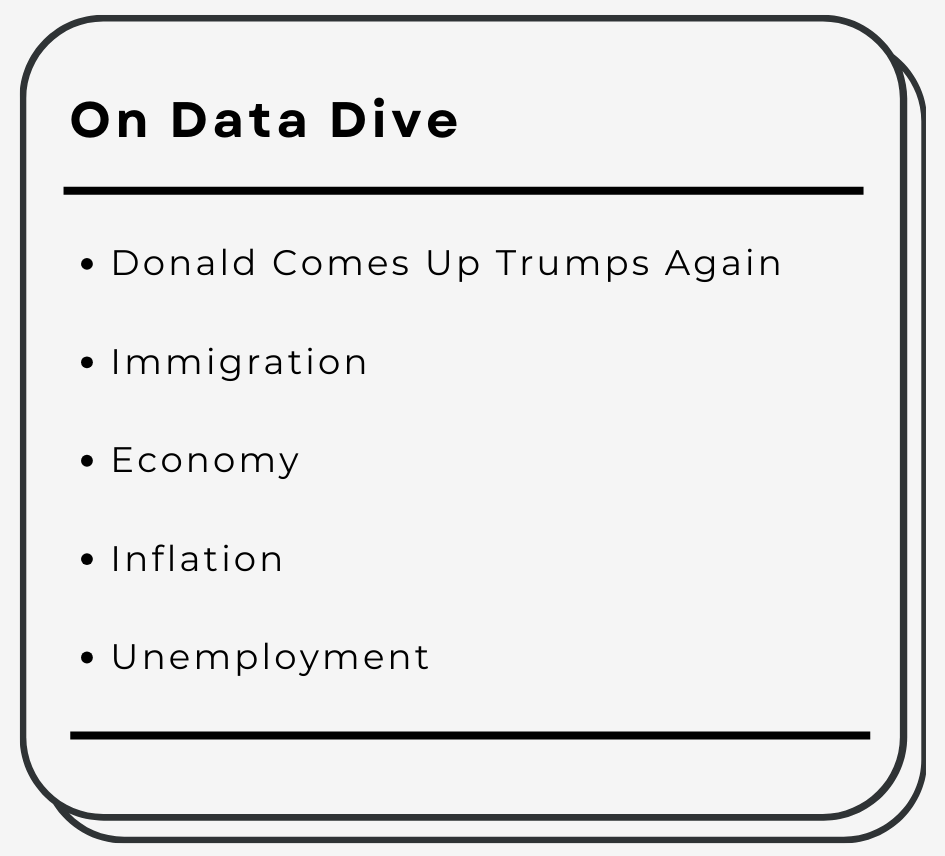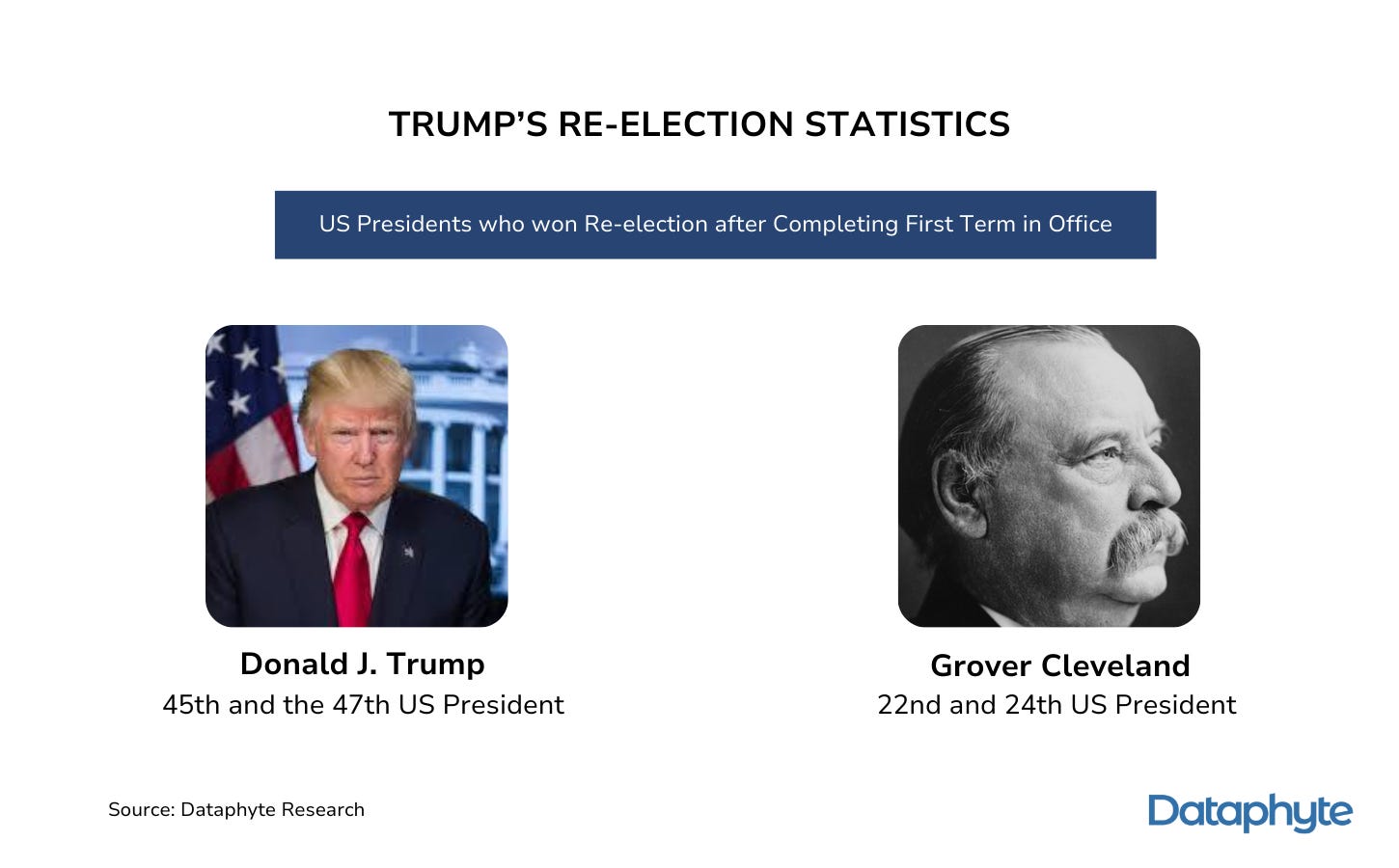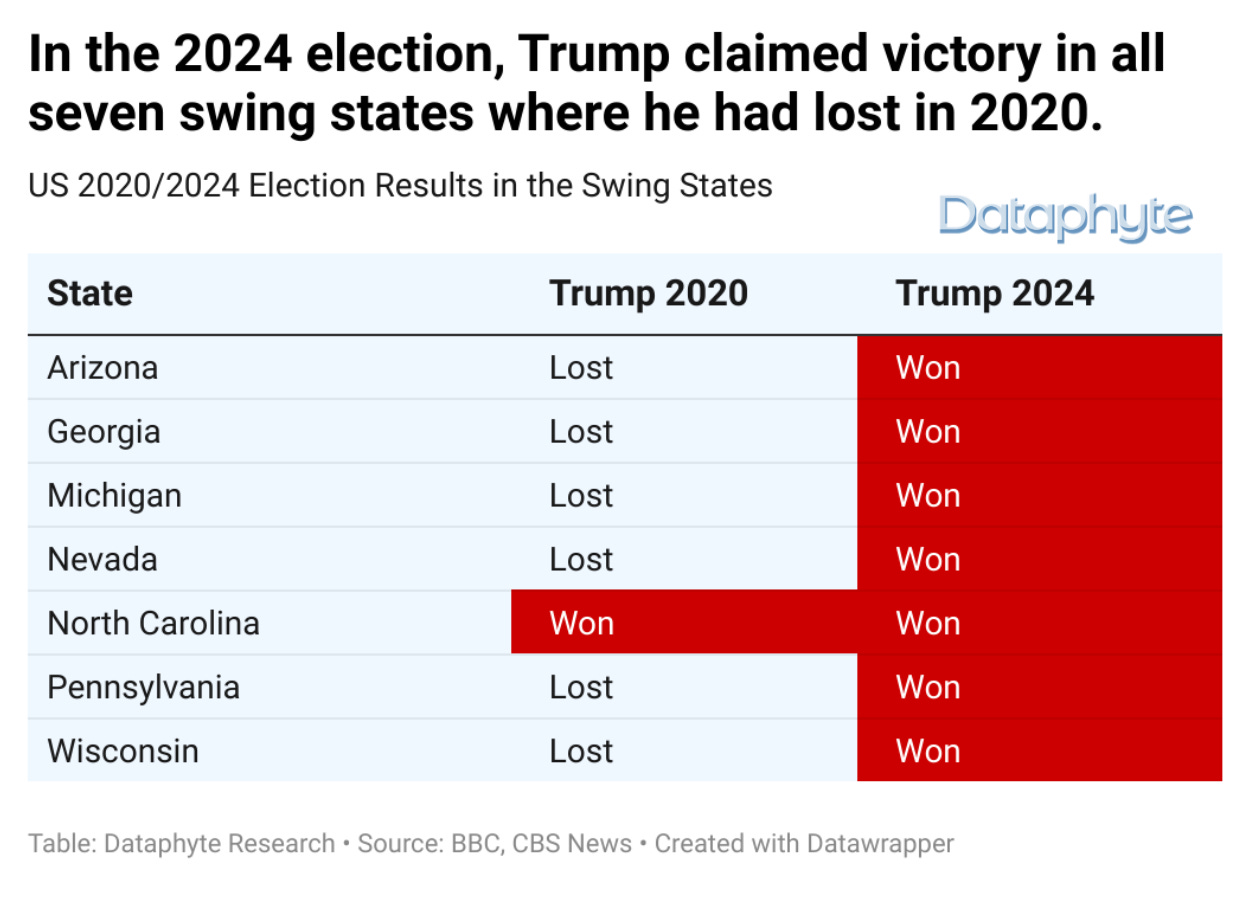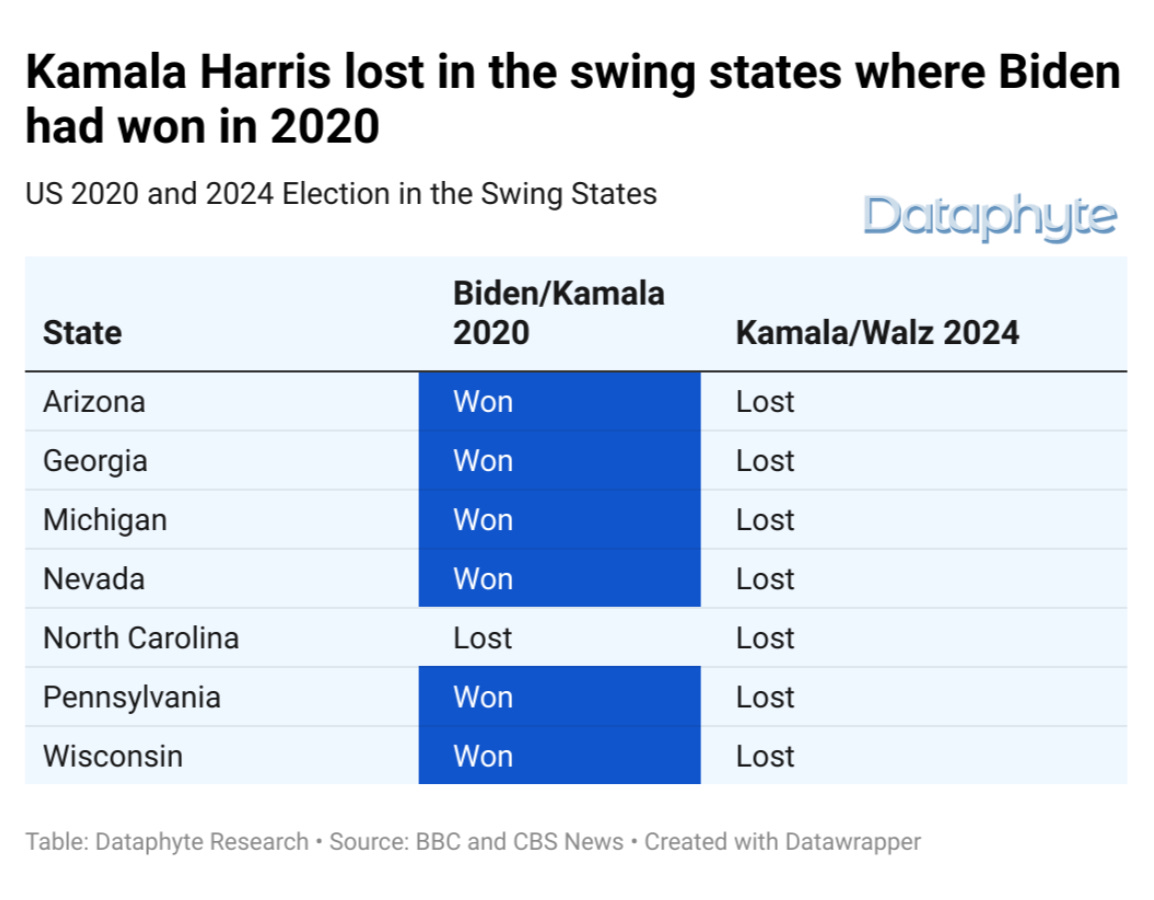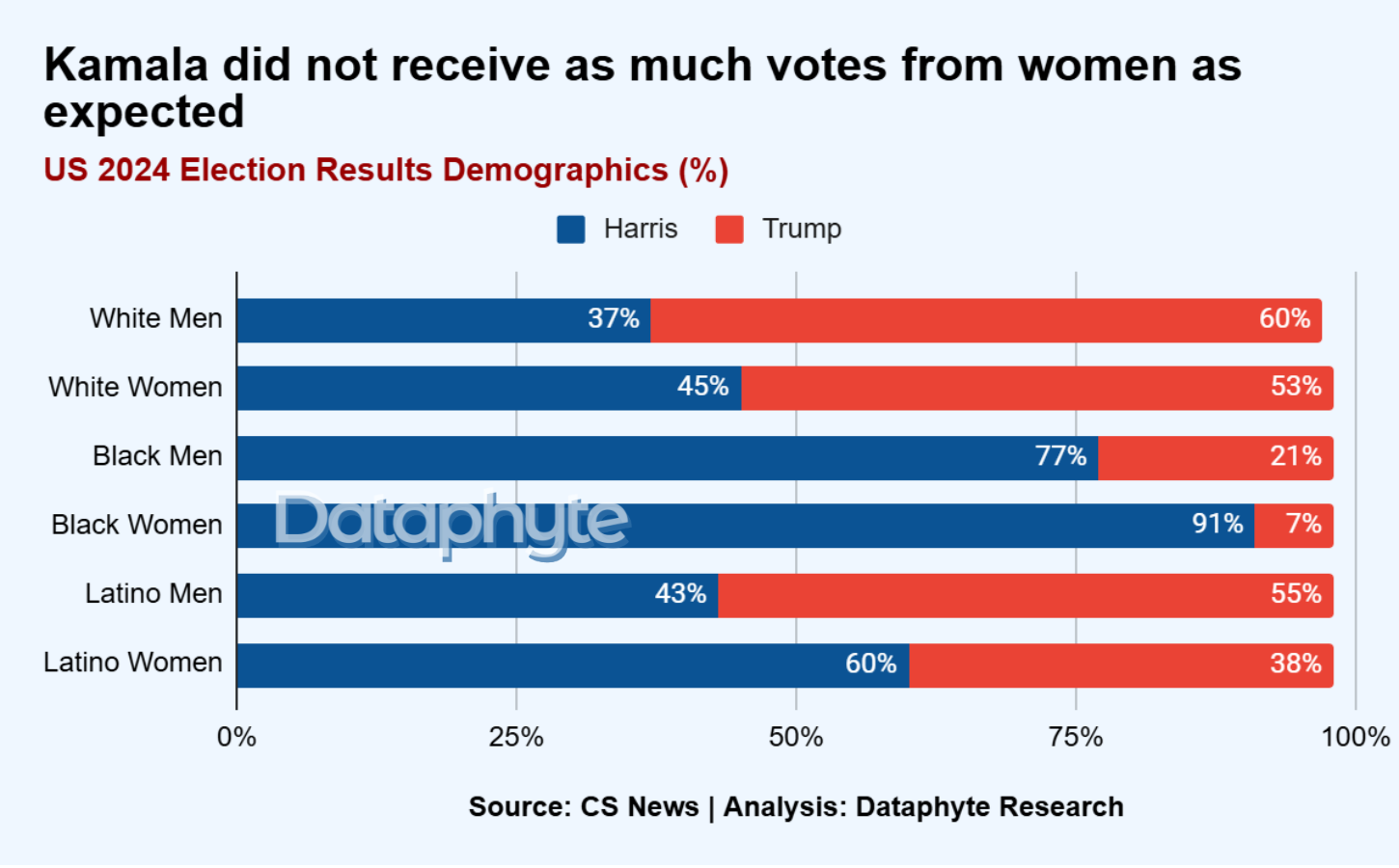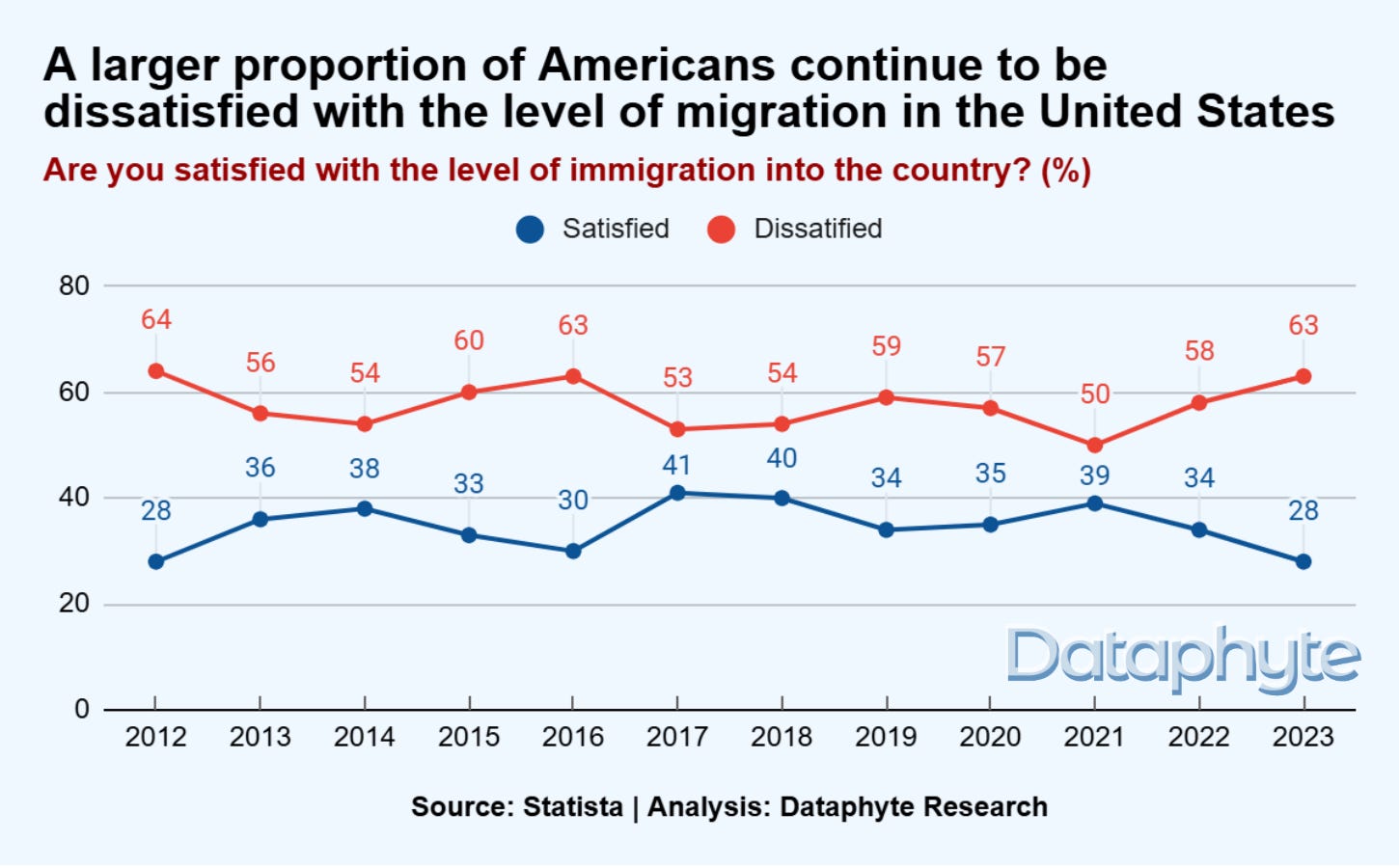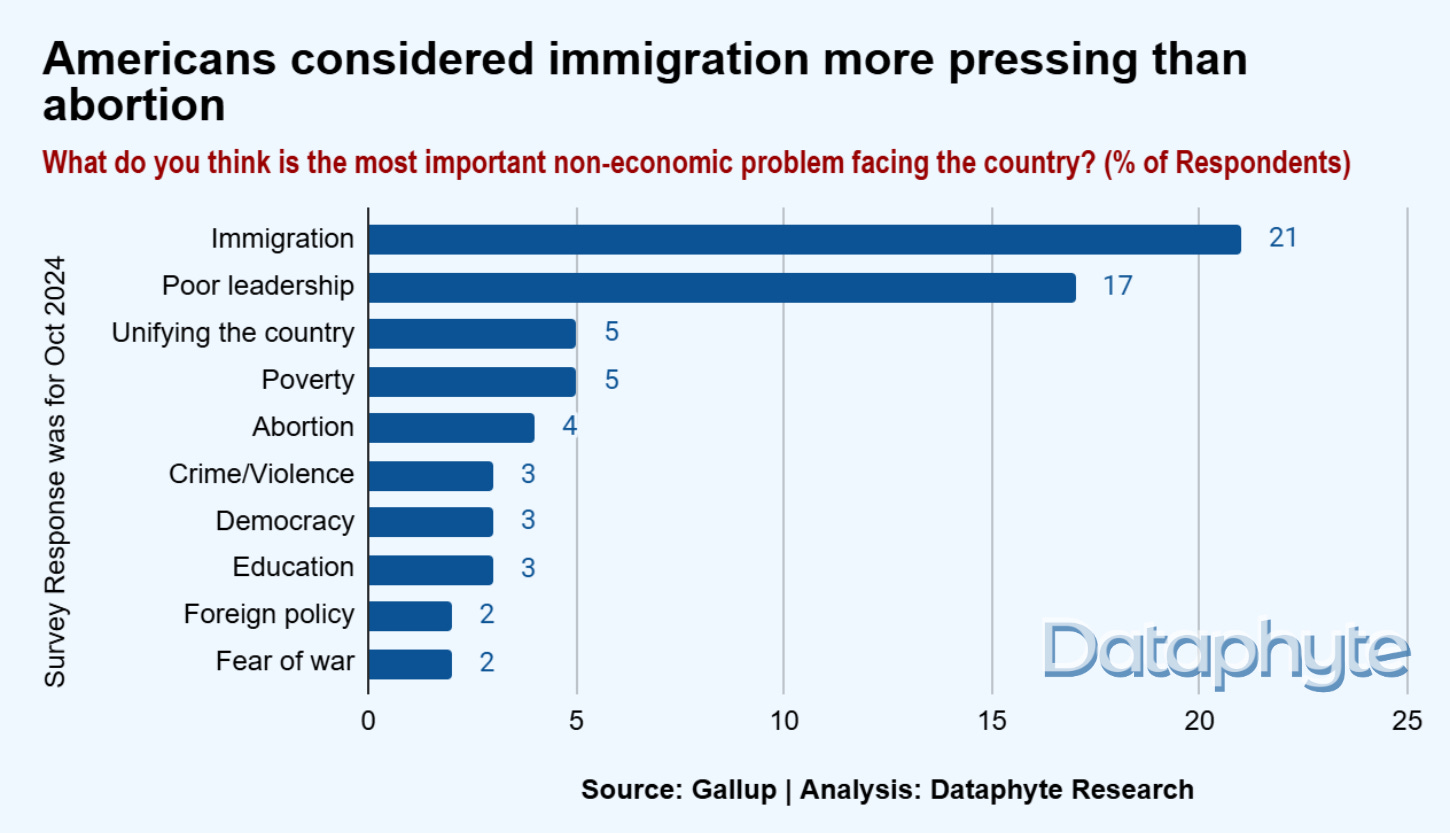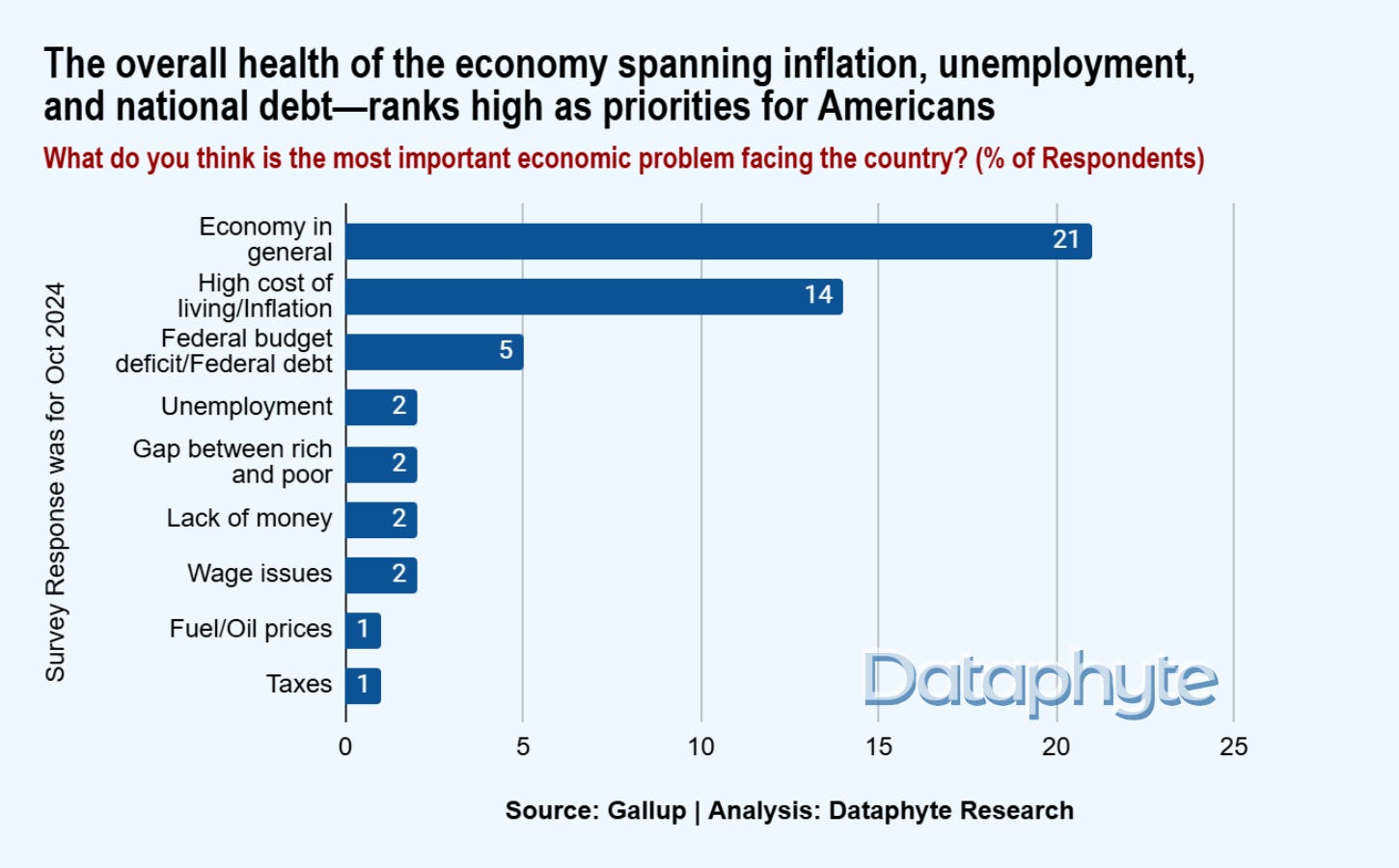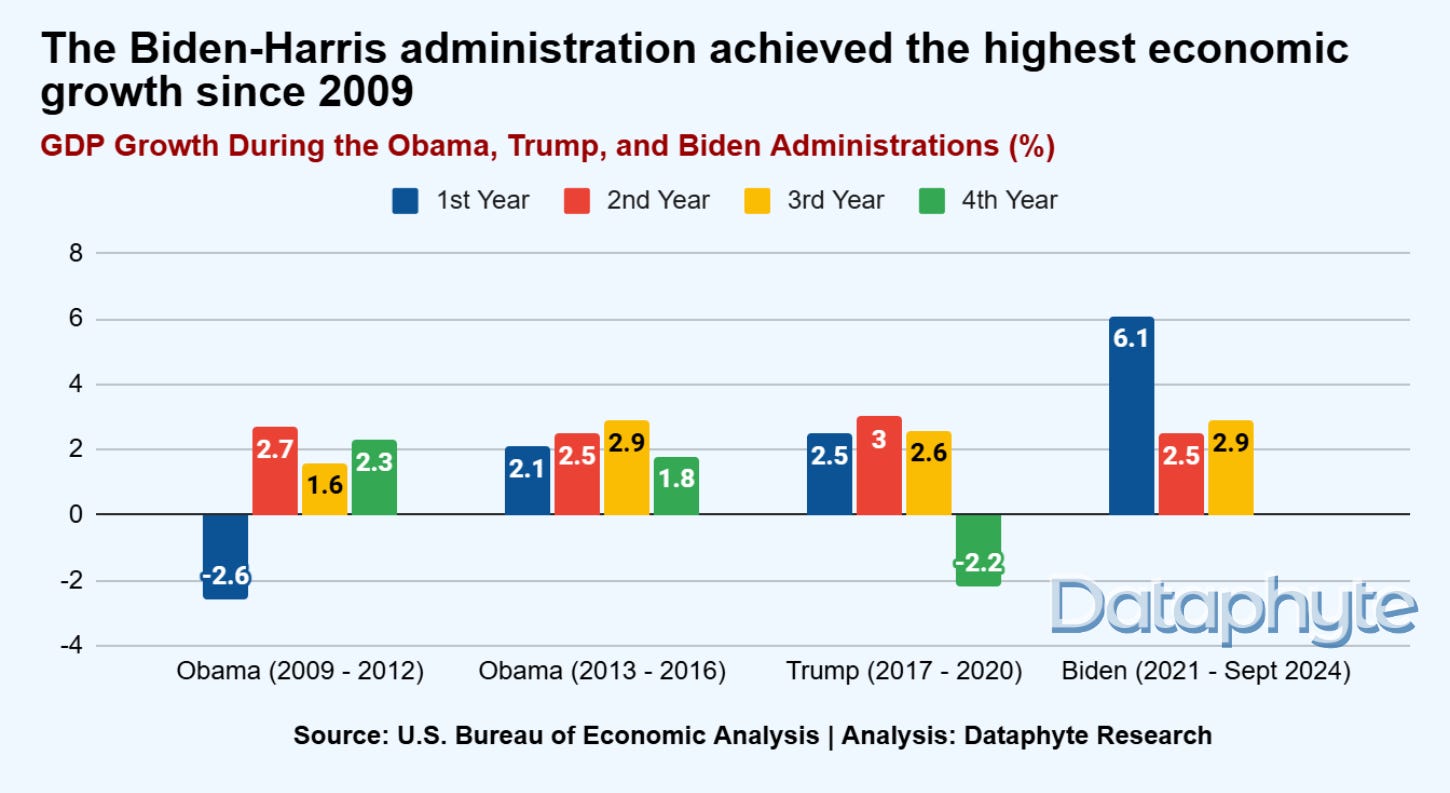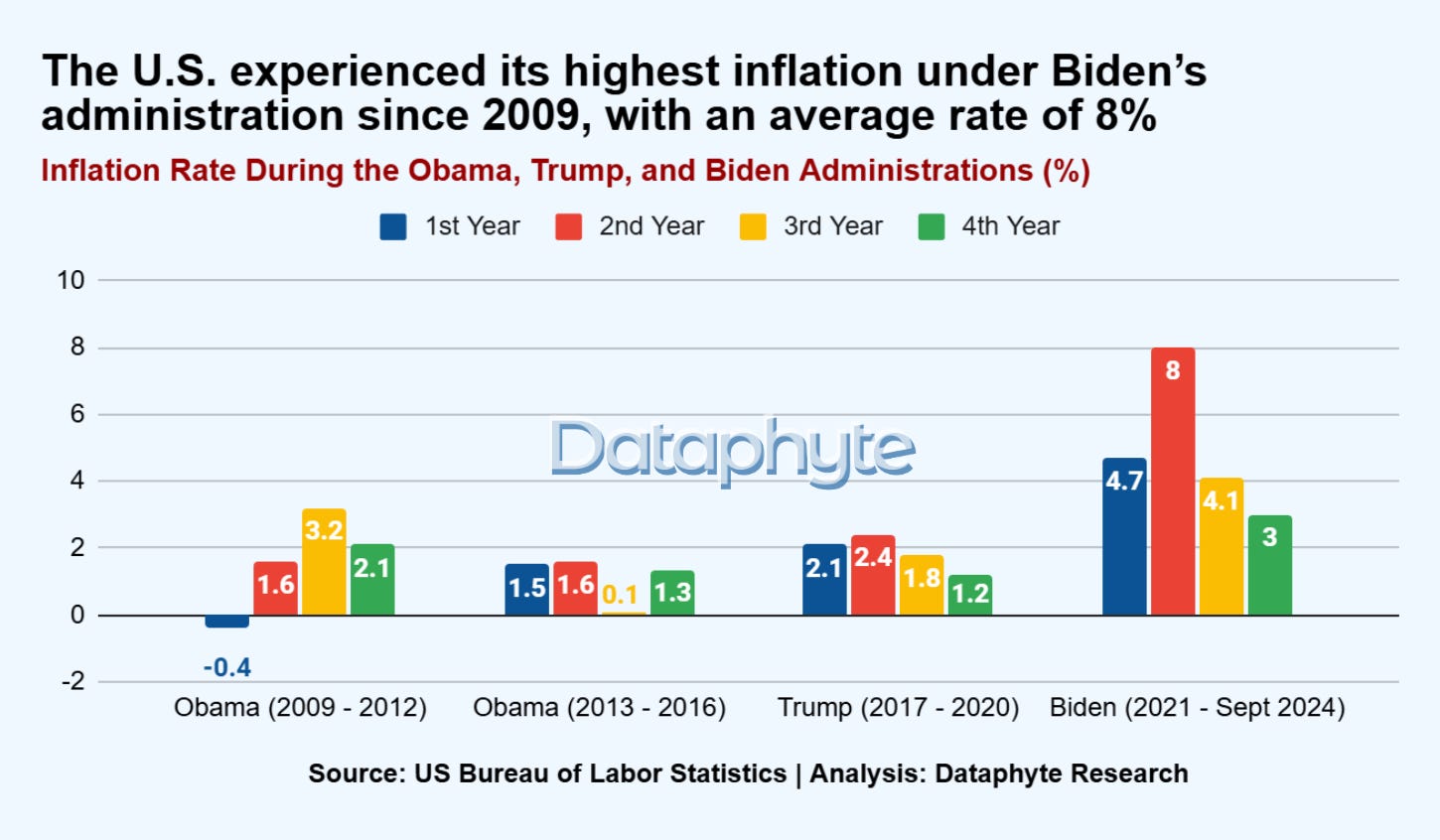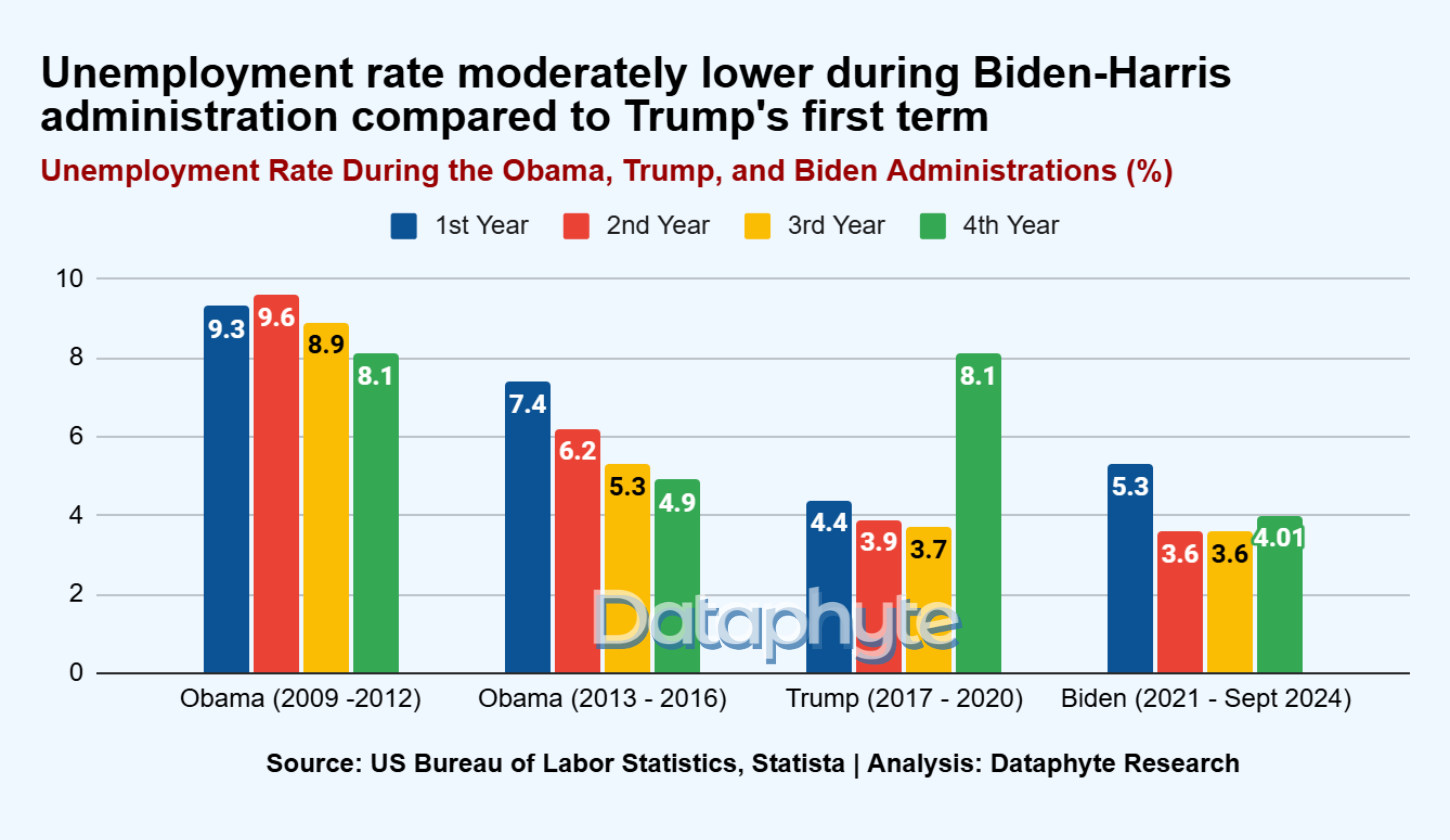Donald Comes Up Trumps Again
On November 5, 2024, Donald Trump was returned as President-elect of the United States after losing his re-election bid in 2020. Trump is the first person to be elected to two non-consecutive terms as US President since Grover Cleveland, who served as the 22nd president and 24th president, the latter term beginning in 1883.
Many propositions have emerged about why Trump won and his opponent, Kamala Harris, lost. In the end, only one candidate could take the victory—whether it was Trump, Harris, Stein, Kennedy, or anyone else.
Yet, the unique circumstances that surrounded the election stirred significant concern, especially with Biden stepping down from the presidential race just 104 days before Election Day.
Analysts say Trump’s positions on key issues like immigration, Israel’s war, abortion rights, and the economy increased his chances of winning.
In the case of Kamala Harris, some suggested it is because she is a woman and a black American with South Asian heritage. Others argue she focused too much on abortion rights and did not clearly define her stance on the Middle East conflict, the economy, or how she would do things differently from Joe Biden.
Donald Trump modified his position on abortion by initially stating that the issue should be left to each state to decide and later reinforcing this stance by pledging to veto any national abortion ban.
Kamala’s loss may not solely come down to questions of race and gender. Voters’ assessment of Biden’s performance on essential issues like inflation and immigration was negative, which might have influenced their perception of Kamala’s ability to handle the issues.
The salience of these issues directly or indirectly explains why voters in the swing states—Arizona, Georgia, Michigan, Nevada, North Carolina, Pennsylvania, and Wisconsin—leaned red this time, contrasting with their 2020 voting pattern when Trump lost to Biden and Harris.
Trump won all the swing states in the 2024 election compared to 2020 when he lost in all except in North Carolina.
In Kamala Harris’ case, she lost in all the swing states where Biden and her had won in the 2020 election. Whether it’s socio-economic issues, gender or race, many factors shape how people vote in elections, often weaving together in complex, interconnected ways that influence individual choices.
Notably, the powerful forces of identity and racial politics also shaped voter demographics in the 2024 US election with ballots reflecting more than just policy issues.
Harris performed better with women than men, except among black men. However, her support among women significantly declined, as referenda protecting abortion rights lessened the need to elect pro-choice candidates, allowing voters to keep abortion legal through direct voting. Seeing this shift, Trump clarified he would avoid federal action on abortion, which opened the door for many pro-choice voters to support him over other issues like the economy and immigration.
Immigration
A Statista survey conducted between 2012 and 2023 on Americans' perceptions of immigration levels revealed that a majority of respondents were dissatisfied. This suggests that, in the 2024 Presidential election, American voters likely favoured the candidate that prioritises migration issues.
In fact, many people consider immigration to be the most important non-economic problem in the US compared to other issues including abortion rights, which was one of the strong points of Kamala’s campaign.
During his campaign, Trump promised to carry out the largest mass deportations of undocumented migrants in U.S. history and finish building the border wall with Mexico, a project initiated during his first term. Although pundits speculated that the proposed mass deportations on such a massive scale would encounter significant legal and logistical obstacles and might also hinder economic growth, yet, it remains a major issue for the majority of Americans.
This implies that what matters most to a person is likely to drive their choices and actions.
Economy
As the 2024 Presidential election approached, the economy stood out as a key issue for Americans. An October 2024 Gallup survey asking citizens about the country's most pressing problems found that economic health—spanning inflation, unemployment, and national debt—ranks high on their list of priorities.
In context, the Biden-Harris administration achieved the highest economic growth since 2009. They boosted growth and productivity after inheriting a contracted economy from Trump. However, growth slowed in their second year, with a slight rebound in 2023.
Inflation
The U.S. experienced its highest inflation under Biden’s administration, with an average rate of 8% in 2022, followed by declines in 2023 and 2024. Although all four administrations since 2009 saw a similar trend of rising inflation between their first and second years, Biden's administration recorded the sharpest increase.
Both Trump and Kamala echoed "end inflation," during their campaigns and you can bet that households across America were tuning in, weighing which candidate spoke to the struggles they feel at their own kitchen tables.
You might wonder: if both candidates pledged to tackle inflation, why was Kamala left out?
Well, it’s all about perspective. Beyond evaluating which candidate places inflation at the top of their agenda, voters may also weigh each candidate’s track record. It’s not just about promises—it’s about who has shown they can deliver. Biden’s performance might have influenced Kamala’s side of the story.
Unemployment
During Trump’s first term, the unemployment rate dropped from 4.9% when he took office to 3.7% by his third year, but it surged to 8.1% in 2020 due to the COVID-19 pandemic. Biden inherited an economy still recovering from the pandemic, with many people having lost their jobs. He managed to reduce unemployment through his third year, though it has risen again recently from January to September 2024.
Beyond the victory and applause, expectations on how President Trump will meet the sweeping promises he made during his campaign will start unfolding. Whether he can implement massive tariffs without driving up costs for average families and triggering new inflation is uncertain. His claims to resolve conflicts in Ukraine and the Middle East while reducing America's international commitments are also yet to be tested.
A report by Brookings noted that any effort to deport millions of undocumented immigrants could backfire, potentially sparking social unrest and alienating Latino voters who feel strongly about this issue. If he falls short of the expectations he has set, both he and his party could face consequences in the 2026 midterms and beyond.
Thank you for reading this edition of Data Dive. We wish the President-elect a tenure that truly "trumps" expectations, marked by unity, and prosperity for all Americans.




